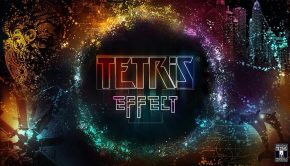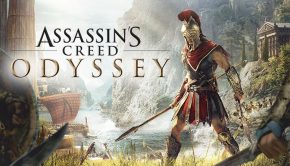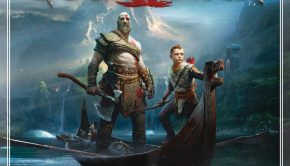Bear McCreary Interview: New Ventures in Game Music
Emmy award-winning composer Bear McCreary initially burst onto the scene with his groundbreaking score to Battlestar Galactica, and since then his compositional career has been one hit after the next. From The Walking Dead to the just-released 10 Cloverfield Lane, McCreary has landed some amazing scores. In the world of game music, he scored for games like Defiance and Dark Void – and just last year, his music for the Jack the Ripper DLC to Assassin’s Creed: Syndicate was released on several music retail platforms, including iTunes and Amazon.
In the first of our series of MAGfest 2016 interviews, Bear McCreary discusses his approach to composition between gaming and tv, and the musical practices that remain constant throughout his various works. Through the myriad of musical styles that he brings into his writing, McCreary combines experimentation with a set of musical principles to create some powerful and memorable scores.
Interview Credits
Interview Subject: Bear McCreary
Interviewer: Emily McMillan
Editor: Emily McMillan
Coordination: Emily McMillan, Beth Krakower, John Grannan
Interview Content
Emily: We’re excited to have you on the website again!
Bear McCreary: Sure!
Emily: The DLC that you did for Assassin’s Creed – the Jack the Ripper score – something I have often read in other interviews is that the DLC composers often don’t hear the score for the original game – in this case, Syndicate. Was this your experience?
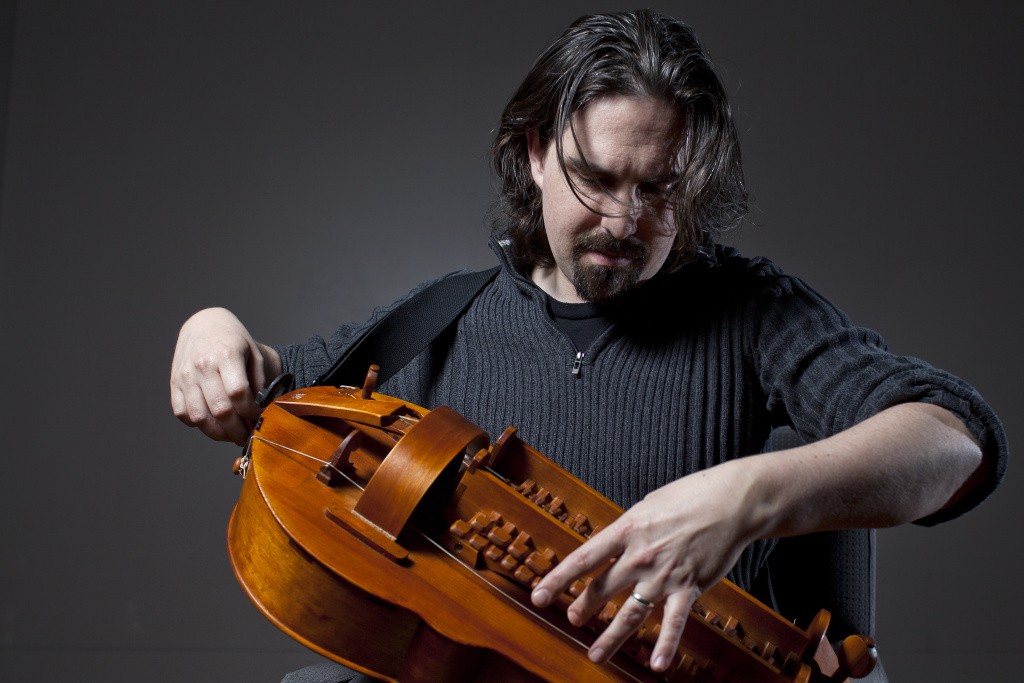
Bear McCreary: That was my experience, yes. I love Austin’s music and was really excited when he was announced for Syndicate, and the first question I asked when I got the call was, ‘well, why doesn’t Austin just do this?’ and I think that there really was a desire for the Jack the Ripper DLC to stand apart tonally, and as the game developed, I realized that really was the case. It was a bleak, dark, gothic, horrific kind of tone, which is unusual for Assassin’s Creed. I think Austin at that point was still in the depths of working, so there really wasn’t a way for me to hear what he was doing. In a way, that worked out for the best, because I was in a total creative vacuum, and the only thing I had to go on was the imagery, the concept, the story of Jack the Ripper, which really pushed me into a more unique tone for that stand-alone DLC.
Emily: It was interesting to hear, because Wintory score ended up being very based in the time period it was written in. It was very traditional, very string-oriented…
Bear McCreary: It was very beautiful!
Emily: It was! But, when juxtaposed with yours, you have this more modern approach – you’ve got these electronic elements, the melody is very embedded in the harmonies you come up with, and it’s not quite as light.
Bear McCreary: Yeah! I tried to make it feel very deranged and psychotic and brutal. All of these are unpleasant musical sounds. I really like this score, but I hope it’s not the kind of score you want to listen to all day. [laughs] The Evie themes were exotic and more beautiful, but still I think – I mean, you’re talking about a character who has gone through a lot of tough themes, and was facing a tough opponent, so her theme ended up being very sad and mysterious. Those were the kinds of things I was trying to evoke with those two themes.
Emily: Both your game and your tv scores tend to follow similar approaches, where instead of having a very animated, distinct melodies, you have these harmonies that the melody can be a part of – or not. How do you approach these kinds of scores?
Bear McCreary: It’s interesting you bring up the harmony vs melody question, because it’s something I think about a lot. How much melody can a project sustain? I am a huge fan of melody – it’s why I like music. But I also recognize that you can have too much. Looking at a project like Battlestar Galactica – the old version from the seventies is a case study in melody. The theme so iconic and we remember it decades later. The new show with a melody that prominent would have sunk. The tone was so modern, so gritty and realistic, and was shot like a documentary – it needed to be big. I had an orchestra and a huge swathe of instruments at my disposal, but the melody needed to be smaller so it could fit that canvas. So a character like Boomer got a theme that was like six or seven notes, and it wasn’t until the fourth season that the palette got a little bit bigger. But the score – I wouldn’t call it a melodically rich score. It’s sonically rich, and harmonically rich. So that was that case.
I just approach every project trying to think about the core piece of music that defines it. I write a theme – whether or not there’s a title sequence – and it becomes a thing to draw from. After that, I can draw material out of it. If you do that right, you get all the DNA you need from that one piece, and I just sort of extrapolate from that. A large score can come out of a small piece of music. Thematic writing is something that comes very naturally to me, and when you’re generating a lot of material, coming up with that core seed is the most important thing to do. So when I have two weeks to do a project, I might spend a week of it just generating three themes. On paper, it can look like madness, because then I have a huge amount of material to write in a shorter amount of time, but I can do it much faster if I’m confident that I have the material to start.
Emily: One of my favorite themes in BSG was that “Passacaglia” that shows up a couple of other times – it plays at the end of Season 1, and…
Bear McCreary: “The Opera House” and “The Shape of Things to Come”!
Emily: Yes! The three times I remember that theme – just a couple of chords – are my absolute favorite piece of music in the series.
Bear McCreary: Keep in mind, for that show, those two chords – it might have even been four – but it’s like, the harmonic language of that show had been so restricted. In some cases, it was just drums, and a simple ethnic melody – you inject a string orchestra, and just a few chords, and it – I think it had the desired effect – you hear four chords after hours of hearing no chords, you sit up out of your chair, and think, what is happening? Something big is happening! It’s all about context. A more traditional approach, a Star Wars approach, has big orchestral music blasting at you non-stop, so you really have to do a much bigger gesture to get a bigger impact. I’ve applied that to The Walking Dead as well, so it’s really minimal where it needs to be, so that in context makes it really shocking.
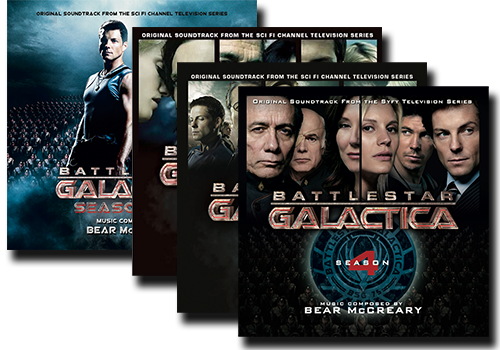
Emily: It also really makes the listener gravitate towards those particular moments.
Bear McCreary: It does! To word it another way, I think music – okay, here’s my little music algorithm.
Emily: [laughs]
Bear McCreary: Music is most effective when it enters and when it stops. Logically, that means the longer it’s not doing one of those two things, it’s losing effectiveness. The longer it lasts, you just keep drifting away, until you just quit listening to it. So I try to use as little music as I can so when I do use it, it’s really powerful. And the same thing applies in games – perhaps more than anything else, it applies in games.
Emily: In Defiance, you had that one theme that permeated the full score.
Bear McCreary: Defiance was a special case, because that was a game and a tv show that were launched on in the same universe. And I was scoring both of them. So I knew I needed some thematic material to tie them all together. I wrote a theme that would function as the theme of the show and the theme of the game. The real challenge was that the show and the game were very different. The game was very action-oriented, and the show was very dramatic. They were each playing to the strengths of what each medium does. It was tricky for me to make something that would work in both worlds, which is why I wanted a theme that had a strong percussive and synthetic element, and in that show I learned a lot about synthesis, and how to use synthesizers in my writing, which up until that point I really didn’t use a lot. But I also wanted something really melodic, and so I had that violin, and the orchestra doing this melody that, out of context, could be very emotional, very dramatic. And I thought, with all of those pieces, I can go off to the game and do those action pieces, and within the show do something very dramatic.
Emily: So, this chiptune stuff in Dark Void Zero– where did that come from? You’re very invested in choosing your particular unique, ethnic instruments, and then all of a sudden we get this chiptune. What was that like?
Bear McCreary: I scored a game for Capcom called Dark Void …. which was my first video game, and I scored it like it would be my last. I scored it like it would be my last. I mean, I was so excited to be scoring a game, I grew up playing games in the 8-bit era, in the 16-bit era, and now I was working for Capcom! It was just so thrilling. As I was working on the score, I wrote the theme for it, which I think in my biased opinion is one of the strongest melodies I’ve ever written. And I just thought, what if I did this in an 8-bit style, just because it’s a game and it’s for Capcom, and I did it like Mega Man! What if I made a sound like that! So I started working on making custom samples from NES hardware, and then it spiraled into this horrible thing to SNES hardware, then Sega Genesis hardware, and ultimately all of this culminated in my Angry Video Game Nerd movie – I just had all of these samples, and I wanted to make music in the style. So anyway, I made an 8-bit version of my dark void theme, and as it turned out, Capcom had been considering doing an 8-bit prequel game to Dark Void. They heard this music of mine, and went, “wait a minute…” so they made this mobile game called Dark Void Zero, and I scored it in a weekend but….Ihave never had so much fun, to be honest. I got to do all these levels, and these boss battles, in this really legit 8-bit style off of samples I had made from NES hardware. And it’s – well, you can check it out on iTunes! It’s still one of my coolest scores to date.
Emily: I love hearing about those little works that the composers themselves gravitate towards. It’s funny you mention Mega Man – I just came from an interview with Matsumae-san about three minutes before we started talking!
Bear McCreary: I have to admit, I’ve been incredibly star-struck at the amount of talent here.
Emily: As a tv composer gravitating towards games, one trend that is often discussed in game music is the rise of the big, sweeping Hollywood score. It’s a little different for you, because your scores are rarely in that category – you tend to focus on a few significant instruments or lines.
Bear McCreary: It’s…interesting. I’ve been very fortunate in that the vast majority of the projects I’ve done have been orchestral. Even in the mediums that don’t really have it, I have had a lot of opportunity to work with orchestral scores. I would say that – that the orchestra is a tool. And I’m grateful for having that tool at my disposal. But I also find that – especially in games, it can be a bit of a crutch. A big orchestra does not a good score make. When it became possible in the 90s, I feel like the pendulum swung so far towards big, loud scores that it took them almost a decade to discvoer. Like they had to get it out of their system – you see a main title, the score is blaring at you – and now the pendulum is starting to reach a better medium.
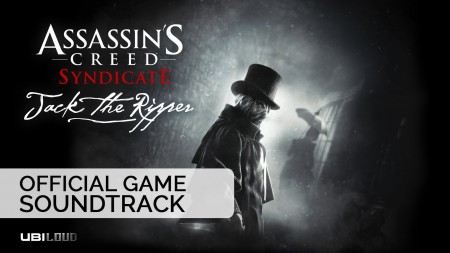
Emily: Is there anything else you would like to say to your fans, and readers of our website?
Bear McCreary: I would just like to say that…I’ve got another video game score coming out in the future that I think you’re going to like a lot.
Emily: Are you allowed to say anything else? Can we expect an announcement in the next….?
Bear McCreary: We will announce it in the near future! Like in the next…yeah. [laughs]
Emily: I’ll take it!
Bear McCreary: That’s about all I can say! But that’s another way for me to say that the game industry has been very inviting, and very welcoming to me – and I’m hoping to be a part of it even more.
Posted on March 21, 2016 by Emily McMillan. Last modified on May 3, 2016.


